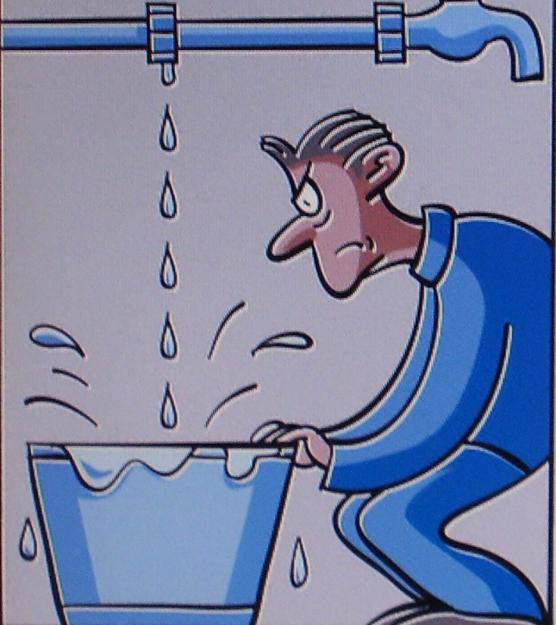We previously discussed the importance of good time management: creators and dreamers can make the most of their limited time -- and accomplish far more each day -- by working and living in an organized and efficient manner. Getting organized can benefit us in every area of life, but it involves cutting the clutter: not just the physical clutter in our homes, offices, and creative spaces; but also the social and emotional clutter that tends to keep us preoccupied. Eliminating an overabundance of things, "friends," activities, and concerns can free us for more important pursuits. Furthermore, cutting the clutter in these areas automatically translates to a leaner, more manageable schedule, which in turn translates to more time.
Time is precious, because there’s never quite enough to go around — at least not when we’re trying to achieve our goals while also meeting the needs of friends and family, as well as the responsibilities of work, government, and community. So, here are two more tips for maximizing your time.
- Take Inventory: As we stated earlier, the first step to solving any problem
 in life is to identify the problem … and when and where it occurs.
in life is to identify the problem … and when and where it occurs.
Think of time as water, precious and limited; flowing through life the way water flows through a pipe. Is there a leak somewhere? Is time being wasted through a “crack” in our schedules — the same way water drips from a damaged pipe? If so, we want to plug the leak and save our time. Problem is, as any good plumber will relate, you have to first find the leak!
Plumbers sometimes use smoke to locate any cracks in large, complex expanses of piping. We don’t need anything so elaborate. We can simply take an honest look at how we spend our days. To determine where all our time is going, we can take an inventory of our activities, and how much time we spend on each one. What we discover can be quite sobering.
Is your time leaking away through too much social media, television, sports, shopping, hobbies, or other leisure activities? Studies reveal that on  average, people watch 6 to 8 hours of TV per day. No wonder we know the words to all those advertising jingles! Of course, not everyone is glued to the Telly. Some of us are wired to our computer tablets and phones: the same studies report that the average person spends 4 to 7 hours on the Internet! Imagine how much could be accomplished each day if we limited the time leaking — actually, GUSHING — through these and similar “cracks” in our schedules!
average, people watch 6 to 8 hours of TV per day. No wonder we know the words to all those advertising jingles! Of course, not everyone is glued to the Telly. Some of us are wired to our computer tablets and phones: the same studies report that the average person spends 4 to 7 hours on the Internet! Imagine how much could be accomplished each day if we limited the time leaking — actually, GUSHING — through these and similar “cracks” in our schedules!
Yes, we all need recreational pursuits, but we need to maintain a balance. Most of us, however, will never realize exactly how much time we’re wasting … until we take a serious looks at how we spend our days. So, take inventory. Keep track of how much time you spend on any given activity; and then cut the clutter from your schedule.
- Keep a Schedule.
Speaking of schedules, if we don’t create and keep one, then we can’t truly organize our activities and our time. In fact, schedules were invented by the human race to keep the world organized, and to help people live more  efficiently. Schedules are lists (of appointments, functions, services, activities, and responsibilities), their designated times, and often of their durations. Trains and planes run on schedules, which prevents chaos and maximizes productivity. Doctors use schedules to arrange appointments, and … well, let’s move on.
efficiently. Schedules are lists (of appointments, functions, services, activities, and responsibilities), their designated times, and often of their durations. Trains and planes run on schedules, which prevents chaos and maximizes productivity. Doctors use schedules to arrange appointments, and … well, let’s move on.
Schedules are time-dependent. Yes, the clock is our friend.
Sure, there are occasions when it’s nice to hide the clocks, find a spot of ocean sand, throw down a blanket, and just listen to the surf. But if you do this too often, we doubt you’ll fulfill your dreams. People will remember you as a beach bum and not as someone who achieved great goals. Again, balance is key: determine in advance how much of your time will be spent playing video games versus pursuing your dreams.
“For every activity there is a right time and procedure….” (Ecclesiastes 8:6 HCSB)
 Organized people know well in advance what needs to be done, how long it will take, how to go about doing it, and when to get started. And they are disciplined in regards to adhering to their self-imposed schedules. Hence, they always have an objective, a clear goal. They avoid confusion and get more done in less time, while others appear to wander about aimlessly, while accomplishing very little.
Organized people know well in advance what needs to be done, how long it will take, how to go about doing it, and when to get started. And they are disciplined in regards to adhering to their self-imposed schedules. Hence, they always have an objective, a clear goal. They avoid confusion and get more done in less time, while others appear to wander about aimlessly, while accomplishing very little.
When you sit down to draft your schedule — for the day, for the week, and even longer time frames — prioritize your responsibilities. Now, to do this, you obviously need to incorporate this next (essential) practice of good time-management: Write it down.
We’ll cover this point next time we meet. Please! Don’t be late.


 live efficiently and manage our time wisely. The first step, as we previously discussed, is to get organized — your home, your kitchen, your office, your desk or creative space.
live efficiently and manage our time wisely. The first step, as we previously discussed, is to get organized — your home, your kitchen, your office, your desk or creative space. Clutter is a huge problem for just about everyone. And the first step to solving any problem is to identify where and what that problem is. Clutter can be defined as an excessive amount of “any thing” — but especially of unneeded “stuff” or stuff that’s not unnecessary for a given task — which is present in a crowded or untidy fashion, or located in an inappropriate place. For example, a mechanic’s tools, although extremely useful and certainly not a problem when properly arranged and stored in a tool chest, become clutter when spread haphazardly around the garage.
Clutter is a huge problem for just about everyone. And the first step to solving any problem is to identify where and what that problem is. Clutter can be defined as an excessive amount of “any thing” — but especially of unneeded “stuff” or stuff that’s not unnecessary for a given task — which is present in a crowded or untidy fashion, or located in an inappropriate place. For example, a mechanic’s tools, although extremely useful and certainly not a problem when properly arranged and stored in a tool chest, become clutter when spread haphazardly around the garage. your surroundings: a mess of a desk; an overstuffed office; a house that’s a horror, etc.
your surroundings: a mess of a desk; an overstuffed office; a house that’s a horror, etc. what’s most important — like achieving your goals — and limit your other activities. No, don’t become obsessed, but realize your time and energy are precious, and cut the clutter from these other areas:
what’s most important — like achieving your goals — and limit your other activities. No, don’t become obsessed, but realize your time and energy are precious, and cut the clutter from these other areas: the next great singer, actor, writer, artist, inventor, entrepreneur, teacher, missionary, pastor … (just fill in the blank) … or: the dude with the best physique; the gal with the most Tupperware prizes; the lady who throws the most elaborate parties; the guy with the coolest shot glass collection. Don’t allow trivial pursuits and asinine ambitions to clutter the path to what you want to achieve most in life — and to what’s most important. (We’ll discuss this more, in “Stay Focused”)
the next great singer, actor, writer, artist, inventor, entrepreneur, teacher, missionary, pastor … (just fill in the blank) … or: the dude with the best physique; the gal with the most Tupperware prizes; the lady who throws the most elaborate parties; the guy with the coolest shot glass collection. Don’t allow trivial pursuits and asinine ambitions to clutter the path to what you want to achieve most in life — and to what’s most important. (We’ll discuss this more, in “Stay Focused”) get together, socialize, catch up, and vent. But how many hours are there in a week — AFTER you subtract work and family responsibilities? Not enough, right?
get together, socialize, catch up, and vent. But how many hours are there in a week — AFTER you subtract work and family responsibilities? Not enough, right? Conversely, if you’re spending hours posting your own junk on the Internet, you may want to consider cutting this clutter from your day. Computers are indeed time-machines, but they can’t transport you to that unfulfilled dream waiting in your future.
Conversely, if you’re spending hours posting your own junk on the Internet, you may want to consider cutting this clutter from your day. Computers are indeed time-machines, but they can’t transport you to that unfulfilled dream waiting in your future. In summary: Want to accomplish more? Then manage your time wisely, by getting organized. One key to organization is to cut the clutter — from your schedule, finances, hobbies and interests, as well as your relationships. Too much “stuff,” too many “friends,” too many interests, too many directions — can leave you confused and dazed, with no time or energy for your dreams and creative pursuits.
In summary: Want to accomplish more? Then manage your time wisely, by getting organized. One key to organization is to cut the clutter — from your schedule, finances, hobbies and interests, as well as your relationships. Too much “stuff,” too many “friends,” too many interests, too many directions — can leave you confused and dazed, with no time or energy for your dreams and creative pursuits.